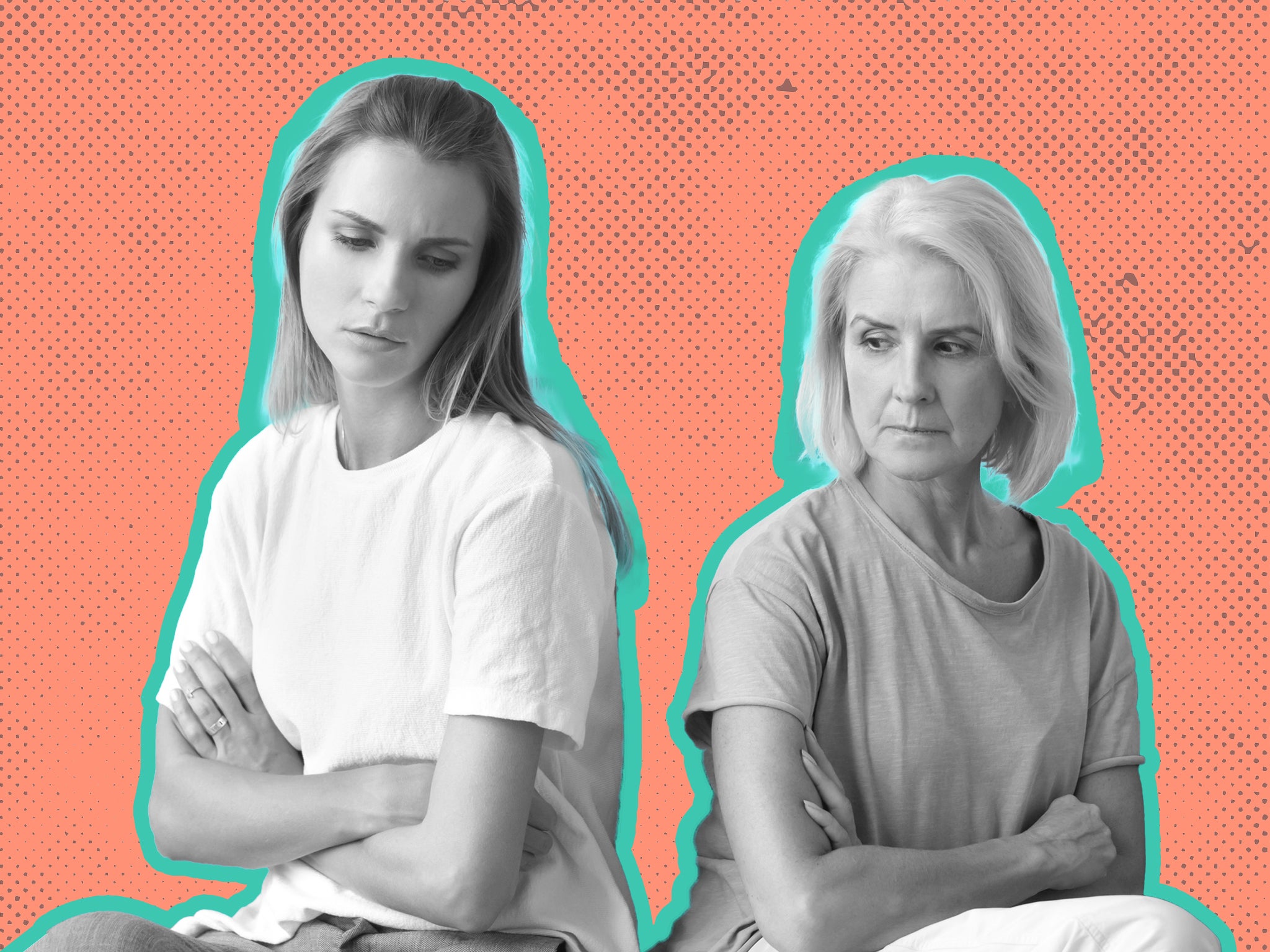America will soon find itself in the throes of celebrating Mother’s Day. Ads for fancy bouquets, chocolate, and jewelry will clog social media feeds. Pictures featuring smiling mothers and their children will be everywhere. For me, photos of moms happily hugging their grown daughters sting the most.
As I was nearing 40, it had become clear to me that my relationship with my mother was more like a case of frenemies. I’d panic when I saw a missed text or call from her. Had I not responded quickly enough? What am I in trouble for this time? How long will it take to convince her that I was busy with work and had not, in fact, been acting maliciously by not immediately responding? What will she say to the rest of the family about me?
Her anger toward me had always been seething, relentless, and lifelong. And after nearly four decades of navigating Mother’s Day on thin ice, I’d been forced to reckon with the elephant in the room: How does a daughter celebrate Mother’s Day when her mother doesn’t like who she is as a person?
I didn’t realize how toxic our relationship had been until I wound up in therapy for generalized anxiety. My therapist, husband, and select close family members were the ones I confided in. Therapy helped to calm the Bad Daughter storm that raged inside my head.
Culture gives us an annual guide of how to celebrate mothers for their (presumed) love and sacrifices, and the messages – from society, social media, family, friends, and even strangers – are not just clear, but practically biblical: Honor thy mother (to the tune of 32 billion dollars in holiday spending).
But there is no roadmap for how to navigate Mother’s Day when your mother simply doesn’t like you. I would know. During one of our last years in touch as mother and daughter, I’d called from across the country to wish her a Happy Mother’s Day. In response, she angrily told me that I was full of shit.
I was hurt, but unsurprised. I’ve only ever fallen short as a daughter, most of the time without even trying.
I am now 42 years old and have been estranged from my mother for more than four years. Maintaining a relationship with a woman whose main emotion toward me was unadulterated contempt and disappointment became an impossible drain on my mental health. The toxicity and emotional manipulation – evident in phone calls, visits, and text messages – had come to a head. Every visit ended in a fight. Text messages were passive-aggressive and accusatory and phone calls strained. No level of Mother’s Day marketing could convince me that our relationship was a healthy one.
According to a survey conducted by researchers at The Ohio State University, mother-child estrangement is a common occurrence, showing that 52 percent of those surveyed were estranged from a daughter while 45 percent were estranged from a son. Mother’s Day propaganda has long ignored the darker side of parent-child relationships, opting instead to perpetuate the myth that all mothers love their children passionately and unconditionally. After all, there are marked-up flowers, chocolate, and jewelry to sell. Nothing says ‘Happy Mother’s Day’ like a healthy dose of price gouging.
I’ve witnessed few mother-child dynamics that actually look like those in the holiday advertisements. When the statistics are what they are, why does Mother’s Day – which seems like more of a spectacle than a holiday with any actual meaning – refuse to acknowledge the many shades of this relationship? The internet is replete with adult children detoxing from their relationships with their mothers, and there are numerous books by top-selling authors on the topic. Popular YouTube channels featuring internationally renowned mental health experts affirm and validate our experiences. Are thousands of people and hoards of professionals lying?
I do, however, sense the tide turning. The last year has seen a handful of celebrities publicly come to terms with their difficult and complicated relationships with their mothers. Actress Jennette McCurdy famously wrote about her mother’s impact on her mental and physical health. In her memoir, I’m Glad My Mom Died, McCurdy detailed a life of disordered eating and emotional struggles, much of which she attributed to her mother’s obsession with McCurdy’s stardom.
In a documentary, Paris Hilton had also publicly spoken about her own childhood trauma, admitting that she attends family therapy with her mother as a means to improve communication and heal. And most recently, Brooke Shieldspublicly spoke for the first time about her complicated relationship with her mother. The public has generally been sympathetic to these women, and I’m hopeful that they’ve inspired a cultural shift in terms of being allowed to talk about all kinds of mother-child relationships. But average adult children with average, non-celebrity lives are not typically privy to such grace when we dare to speak our truth.
I am not suggesting that we, as a culture, abstain from celebrating Mother’s Day. But space should be made, and validation should be offered to those unable to do so.





Join our commenting forum
Join thought-provoking conversations, follow other Independent readers and see their replies
Comments